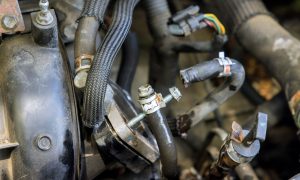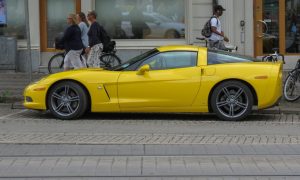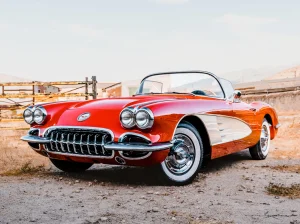Engines are fascinating beasts, but sometimes they make mysterious noises that puzzle even the most experienced drivers. One such mystery is the sound that arises when you take your foot off the gas—that audible symphony during deceleration. Why does an engine make sound when decelerating? Let’s dive deep into why this happens, what contributes to it, and what it might be trying to tell you.
Mechanics of Engine Operation During Deceleration
Understanding why an engine makes sound when decelerating starts with knowing what’s happening inside the machine. When you take your foot off the accelerator, there’s an entire cascade of actions that occur, leading to the interesting symphony of sounds you hear. Let’s explore the intricate mechanics at play.
Throttle Position and Its Effects
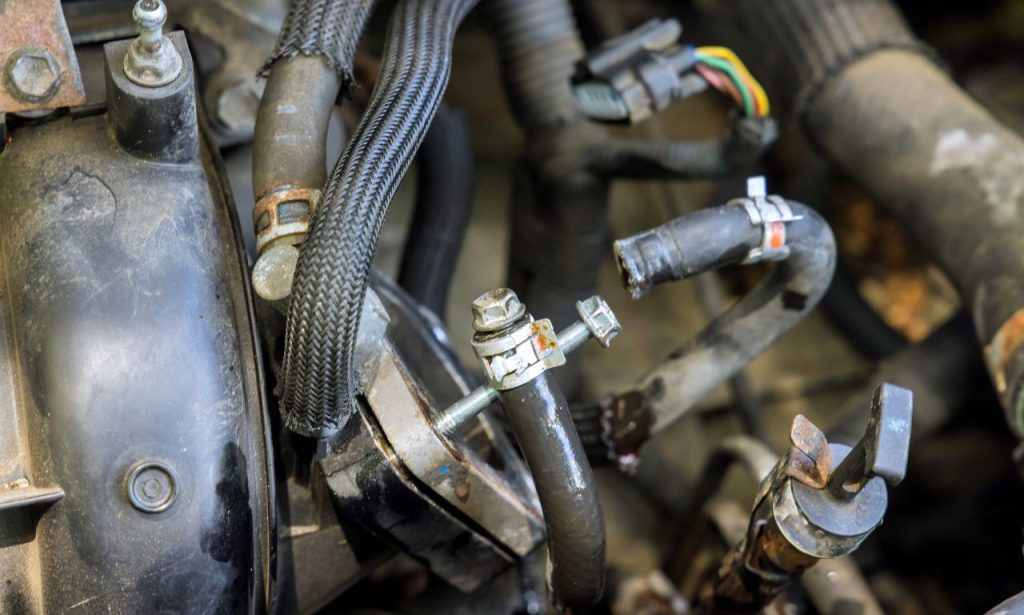
- When you decelerate, the throttle closes, restricting airflow into the engine.
- The engine’s air-fuel ratio changes, causing different combustion dynamics.
- This alteration in air intake leads to specific vibrations and sounds. The muffled popping or rattling noise you hear during deceleration is a result of that rapid adjustment, and the throttle’s attempt to control airflow changes.
- The throttle body essentially moves from an open state to a nearly closed state, leading to pressure differentials that cause a popping or burbling noise.
Changes in Exhaust Pressure
- With the throttle suddenly closed, exhaust pressure starts fluctuating. The exhaust gases have nowhere to go as easily, which means they create back pressure that generates sound.
- These fluctuations generate audible noise due to the exhaust manifold being under a partial vacuum, creating popping sounds as residual gases are expelled.
- You might notice a specific whining noise or even a rattling noise that makes you think twice—but don’t panic, it’s part of the deceleration soundtrack. The sudden changes in exhaust gas velocity lead to the interesting array of sounds you hear.
Airflow Dynamics and Sound Production
- Airflow gets disrupted with sudden changes in throttle position, which means the exhaust system tries to compensate.
- The odd noises often experienced are due to disrupted airflow—like a spinning sound or even strange whirring noise, depending on your engine setup.
- When the air is cut off by the throttle closing, it can lead to turbulence and sudden drops in exhaust velocity, which causes sounds that might remind you of an airplane engine slowing down.
Role of Engine Components
Various engine components come into play when you hear these odd sounds during deceleration. Let’s break it down to understand how different components contribute to why an engine makes sound when decelerating.
Exhaust System’s Influence on Noise
- The exhaust system plays a major role in how sounds are produced during deceleration.
- The original exhaust or any aftermarket exhaust parts will determine if you get subtle hums or metallic pops. For example, a performance exhaust is typically louder and produces more pronounced pops, while a stock exhaust might muffle them.
- The exhaust manifold sometimes gets loud, and it’s the material and condition of these parts that make the difference in the nature of these noises. Steel manifolds tend to amplify certain sounds, while cast iron absorbs more of the resonance.
- A well-tuned exhaust system can create a deep rumble that sounds almost musical, while a poorly maintained system can cause unpleasant rattling or banging.
Catalytic Converter Effects
- The catalytic converter absorbs and modifies some of the sounds coming from the engine, particularly during deceleration when exhaust pressure is reduced.
- A partially blocked or aged catalytic converter can create different audible effects, including extra combustion noise or even metallic noise.
- The catalytic converter can also muffle sounds that originate from incomplete combustion. When you decelerate quickly, unburned fuel can enter the exhaust and combust in the catalytic converter, leading to popping sounds.
Engine Mounts and Vibration Absorption
- Engine mounts absorb vibrations, but worn mounts can lead to more vibrations being audible, especially during deceleration when the engine experiences a sudden reduction in power and torque.
- This is why you might hear more of that rattling noise or strange sound from the engine bay during deceleration if mounts are damaged. If the mounts are in bad shape, you might also notice increased vibrations throughout the vehicle, especially in the steering wheel or pedals.
- The mounts play an important role in isolating engine noise from the passenger compartment, and when they begin to fail, those noises become more apparent.
Impact of Engine Design
Engine sound during deceleration is also significantly affected by the way your car’s engine is designed. Variability in sound depends on factors like engine architecture, materials, and overall engineering. Let’s look at how these factors influence the noises you hear when you take your foot off the gas.
Cylinder Configuration and Sound Variability
- The configuration of the engine’s cylinders affects how sound resonates. Inline engines versus V engines? They have different tendencies when it comes to noise. Inline engines tend to be smoother, while V engines can produce more varied sound profiles.
- Engines with more cylinders often produce less noticeable sounds when decelerating compared to a smaller 3- or 4-cylinder setup. That’s because the more cylinders there are, the smoother the engine operation, and the more balanced the overall sound.
- Piston-driven crankshaft rotation and gearbox-driven crankshaft rotation can produce different types of audible noise during deceleration, especially if the balance isn’t optimal.
- If you have a V8 or V12 engine, you’ll notice a deeper and more consistent deceleration noise compared to a small inline-4, which might be characterized by a sharper, more pronounced sound.
Materials Used in Engine Construction
- Different alloys and materials affect the nature of vibrations. Lighter materials may vibrate differently and produce different sounds when airflow decreases.
- For instance, if an engine uses lightweight aluminum versus a cast-iron block, you’ll likely notice different audible effects when the engine makes sound during deceleration.
- Aluminum blocks tend to resonate at higher frequencies, leading to more pronounced high-pitched noises, while iron blocks absorb more of these frequencies, leading to a more muted sound profile.
- The cylinder head material, as well as the engine cover material, can also influence the way sound propagates through the engine compartment.
External Factors Affecting Engine Sound
Not all sounds that you hear during deceleration come from the engine itself. Some are influenced by external conditions that work in tandem with the engine’s behavior. Let’s explore how these external factors contribute to why an engine makes sound when decelerating.
Road Conditions and Their Influence
- The type of road you’re driving on affects the perception of engine noise. The sound generated when decelerating can vary based on the surface material and the quality of the road.
- Rough roads may amplify noises from unbalanced wheels, while smooth asphalt might make the engine sound more prominent. Listen out for wheel bearings that might generate noise when decelerating, especially when driving on rugged terrain.
- When driving on gravel or uneven roads, the vibrations from the surface can resonate through the drivetrain and produce additional noise that isn’t present when driving on smoother surfaces.
Vehicle Speed Considerations
- The faster you decelerate, the louder the engine sound tends to be. This is because at higher speeds, the exhaust gases are moving much faster, and the engine braking effect is much stronger.
- The RPM range plays a big role here, with engine breaking at higher RPMs resulting in a louder engine compartment noise. At a lower RPM, you might experience a subtle whining noise that’s more of a comfort issue rather than a performance issue.
- When decelerating from high speed, you’re also more likely to hear gear noise if the drivetrain or transmission components are worn. This noise often comes from backlash between gears in the gearbox or differential.
Ambient Noise Pollution and Perception
- Ambient noise can affect how we hear our engines. In areas with more noise pollution, certain frequencies might mask those popping sounds during deceleration.
- Conversely, quieter environments let you hear more of the audible noise, giving you a more detailed experience of why an engine makes sound when decelerating.
- In urban settings with lots of surrounding noise, you might not notice the subtler sounds like occasional tapping noise or strange whirring noise. However, in a quiet area, these sounds become more apparent.
Influence of Engine Breaking and Drivetrain Components
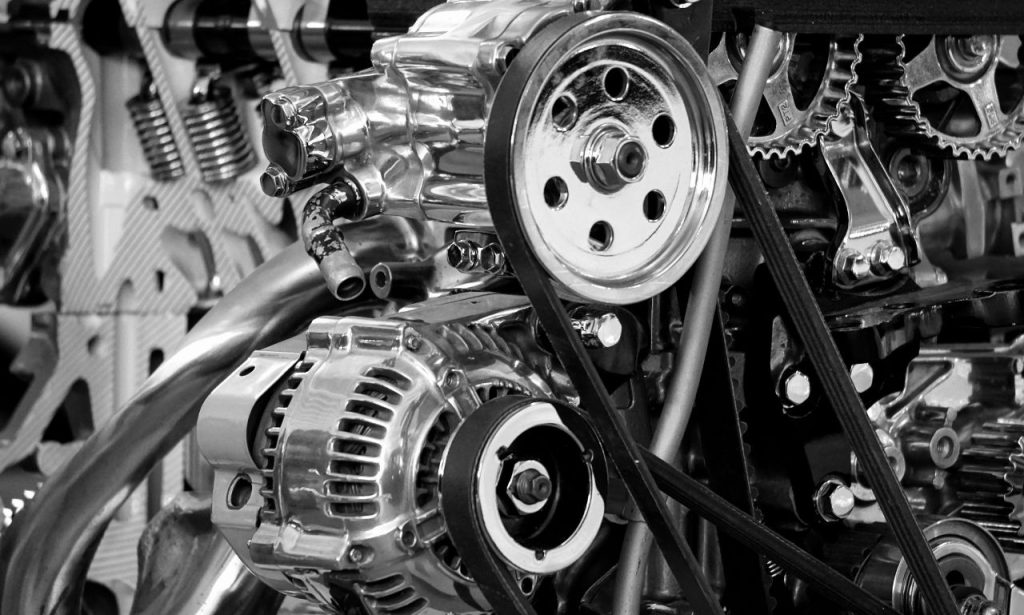
Engine Braking and Its Effects on Noise
- Engine braking occurs when the throttle is closed and the engine’s vacuum increases. This effect leads to a reduction in speed without applying the brakes.
- During engine braking, you might hear a distinctive rumble or popping sound as the unburned fuel is combusted in the exhaust system.
- The gearbox-driven crankshaft rotation also contributes to the noises generated during deceleration, particularly if there is excessive play or wear in the gearbox.
Drivetrain Components and Sound Production
- Components like the drive shaft, rear differential, and wheel bearings can all contribute to noise during deceleration. Worn bearings can produce a whining noise or grinding noise that becomes more noticeable when letting off the gas.
- The gearbox can also be a source of noise, particularly if there’s an issue with the throwout bearing or the diff fluid is low.
- If the crown wheel in the differential is worn or not properly lubricated, it can create noise during deceleration, which might be mistaken for engine noise.
Practical Implications for Vehicle Maintenance
Knowing why an engine makes sound when decelerating can help you identify when something might need attention. Here are some practical maintenance tips to help ensure your vehicle stays in good shape and runs smoothly.
- Be aware of noises like rattling noises, strange whirring noise, or metallic noise. They can be indicators of issues such as a bad catalytic converter, worn engine mounts, or drivetrain issues.
- Regularly checking engine mounts, wheel bearings, and exhaust components can help maintain smooth deceleration with minimal noise.
- Ensure that the diff fluid and transmission fluid are at appropriate levels, as low fluid can lead to increased noise and wear.
- If you hear a popping sound or audible noise during deceleration, it could indicate an issue with the exhaust manifold or the catalytic converter that might need addressing.
- Inspecting and maintaining the belt tensioner and serpentine belt can also help reduce unwanted noise, as these components can produce a high-pitched squeal when they are loose or worn.
Understanding Noise Regulations and Standards
The sound produced during deceleration is subject to vehicle noise regulations. Understanding these helps in choosing aftermarket parts like exhausts without violating sound level standards.
- Changes to the exhaust manifold, gearbox, or drivetrain can have implications for compliance. Some aftermarket exhausts can increase noise levels to the point where they are no longer street legal.
- Many regions have strict regulations regarding noise emissions, which means modifications to the exhaust or intake systems can lead to fines if they increase noise beyond acceptable limits.
Future Research Directions in Engine Sound Analysis
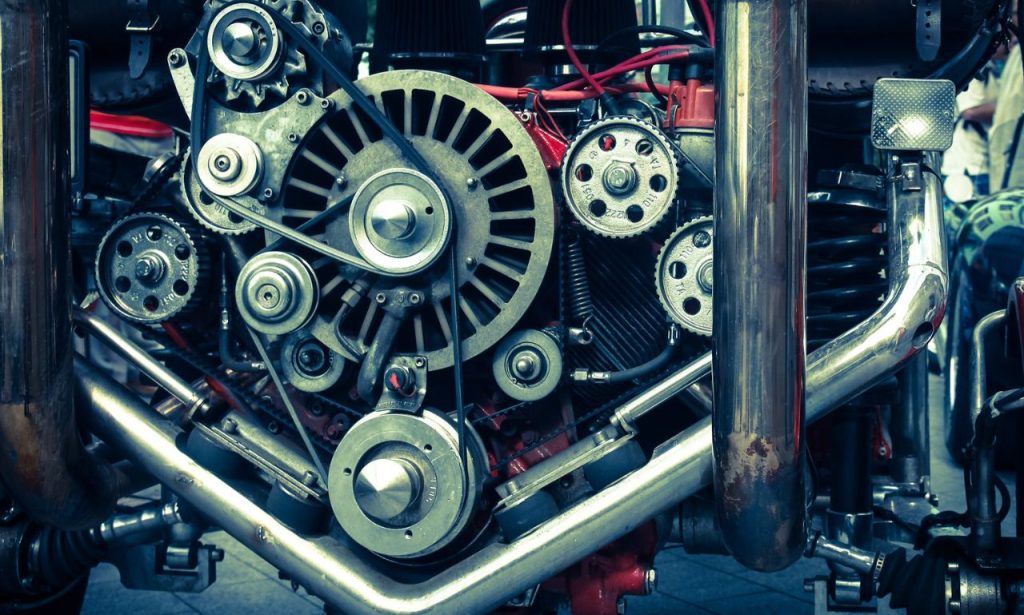
- More studies are needed on how modern materials and turbo technologies change deceleration sounds.
- Understanding how actuation for boost control and turbo vanes interact during deceleration will play a big role in making future engines quieter.
- There is also an increasing interest in how hybrid and electric vehicles will handle deceleration sounds, as they lack the traditional combustion engine noises.
ALSO READ: Why Does My Car Smell Like Popcorn?
FAQs
A whining noise may indicate issues with the gearbox or even low diff fluid. Get it checked if the noise persists.
The noise is often due to changes in throttle position, airflow, and exhaust pressure. Engine components like the exhaust system, catalytic converter, and engine mounts also contribute to these sounds.
Yes, wheel bearings in poor condition can cause noise when you decelerate, particularly if it’s coming from a specific rear wheel or left wheel.
This could be due to changes in the air-fuel mixture or exhaust pressure. The catalytic converter and exhaust manifold also influence this behavior.


